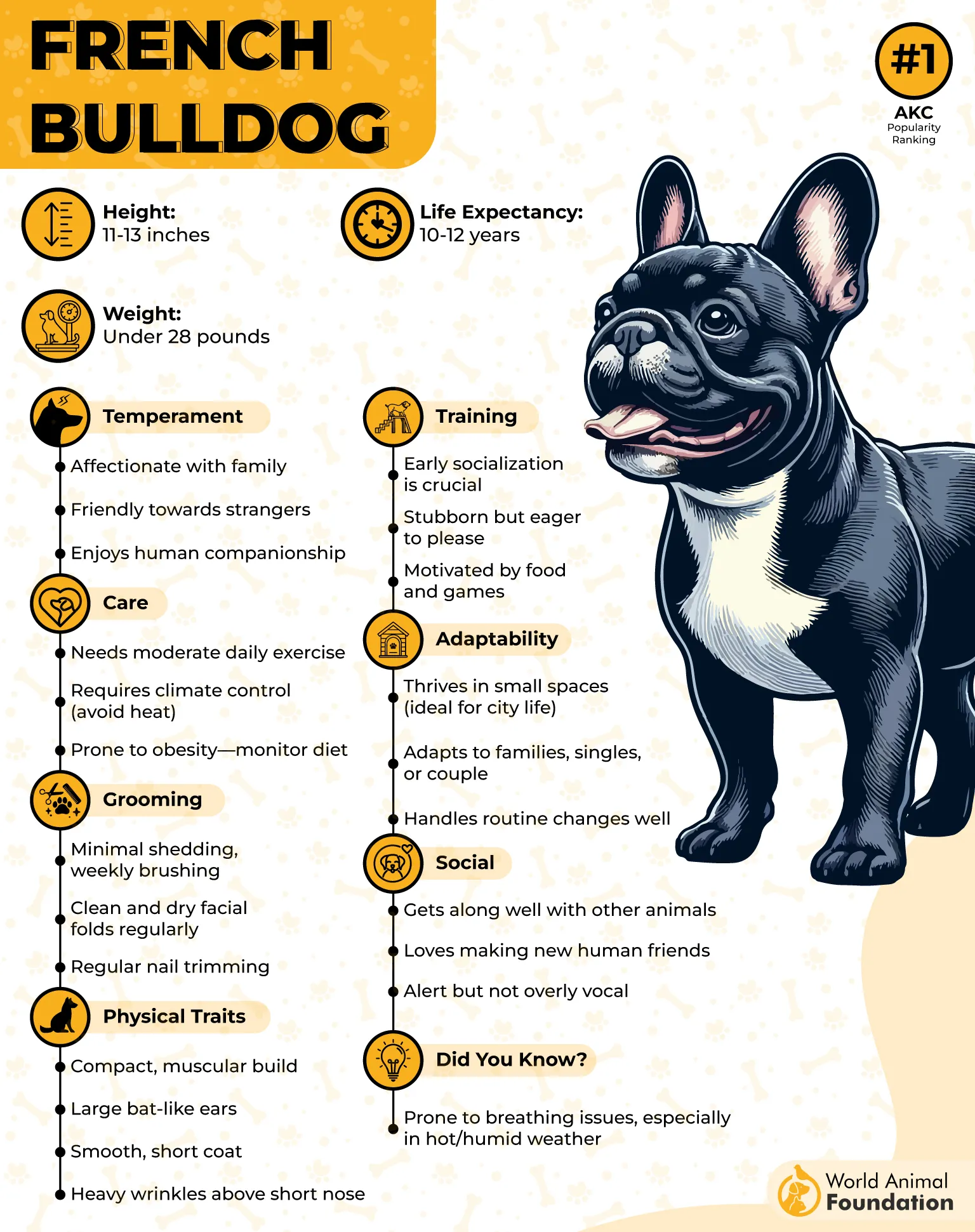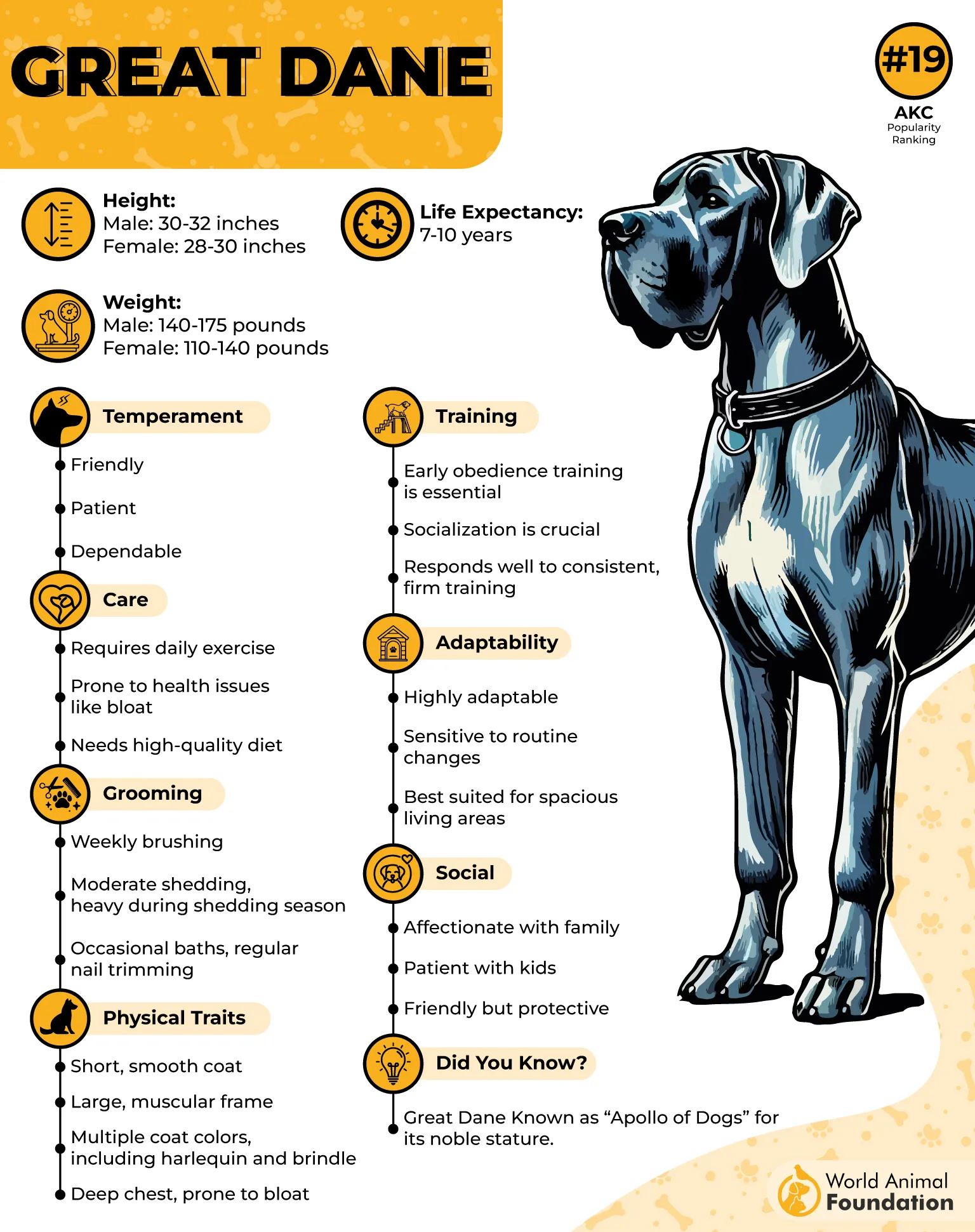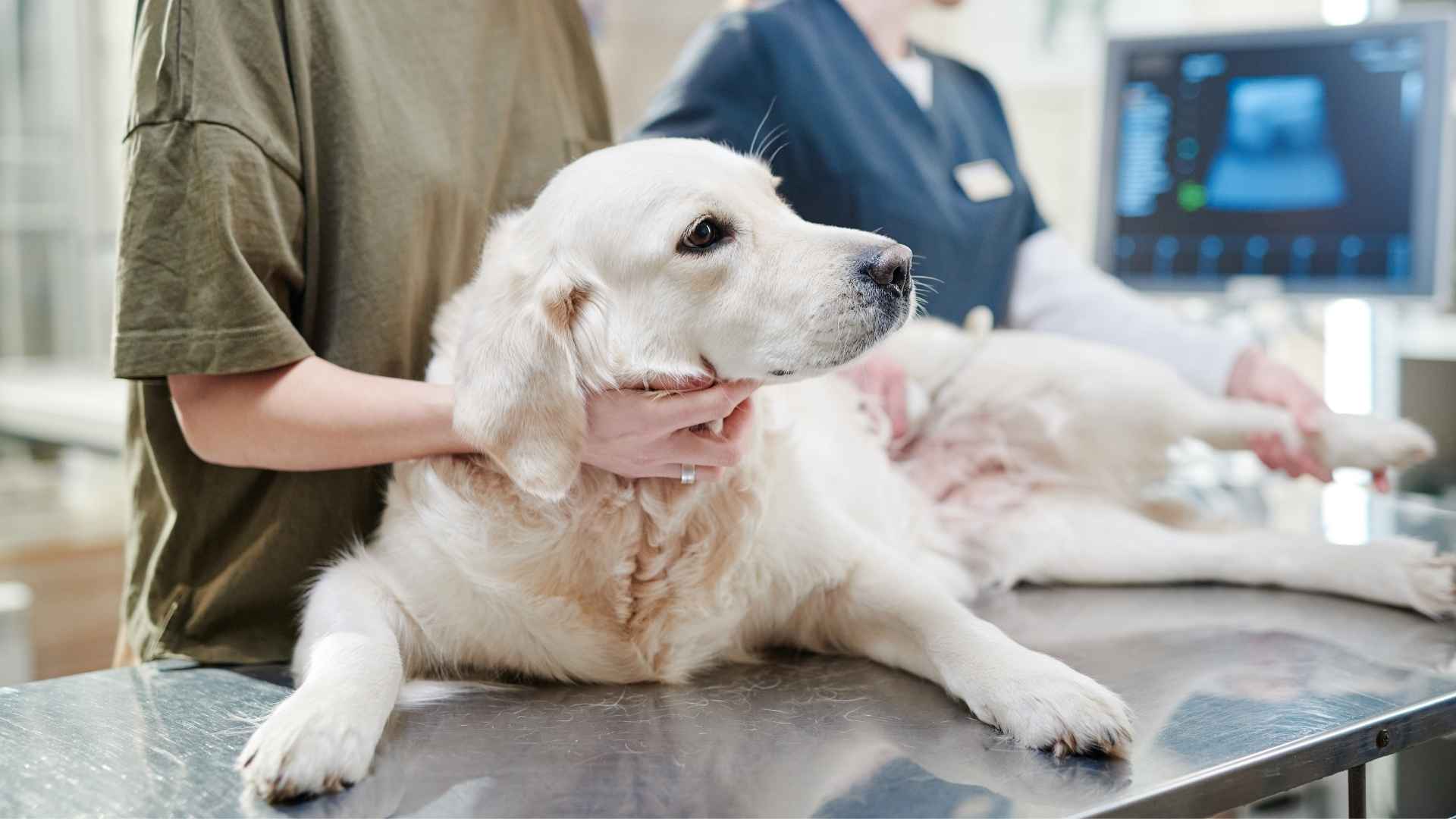Bringing a dog into your life is one of the most rewarding experiences, but it also comes with big responsibilities. While every pup deserves love and care, not all breeds are created equal when it comes to health. Some dogs are more prone to certain conditions due to their genetics, size, or physical traits.
These health concerns can lead to unexpected vet visits, long-term treatments, and emotional stress if you’re not prepared. Whether you’re a first-time pet parent or adding to your furry family, knowing which breeds are more vulnerable can help you make informed choices and plan ahead.
In this blog, we’ll explore some breeds with frequent health issues, what risks they face, and how you can give them the healthiest life possible. Because choosing the right dog isn’t just about personality—it’s about understanding their needs from day one.
Common Health Issue Dog Breeds
1. English Bulldog

English Bulldogs are beloved for their distinctive appearance and gentle temperament. However, as a brachycephalic breed, they are predisposed to several issues that potential owners should be aware of. Understanding these breed-specific health problems is crucial for ensuring a long, healthy life for your Bulldog.
As noted by PetMD, one of the most significant health concerns in English Bulldogs is brachycephalic obstructive airway syndrome (BOAS). Due to their flat faces, shortened airways, and elongated soft palate in the mouth, Bulldogs often experience noisy breathing, snoring, and intolerance to exercise. In severe cases, surgical intervention may be necessary to alleviate these symptoms and improve their quality of life.
Another common issue is skin infections, particularly in the folds of their skin. The moisture and warmth in these areas can lead to bacterial and fungal growth, causing discomfort and potential complications. Regular cleaning and drying of these folds can help prevent such infections and maintain skin health.
Joint disorders, such as hip dysplasia, are also prevalent in Bulldogs. Maintaining a healthy weight and providing joint supplements can aid in managing these issues and improving mobility.
English Bulldogs are also susceptible to entropion – inward rolling-in of the eyelids (usually the lower eyelids. This condition causes irritation, redness, swelling, and discharge.
Bullgogs are prone to obesity, and this excessive weight can exacerbate other health concerns. Regular veterinary medicine check-ups, proper weight management, and a prescription diet tailored to your dog’s age and needs can go a long way in managing these conditions.
2. Boxer
Boxers are known for their energetic and affectionate nature. They are spirited and affectionate, known for their boundless energy and playful nature. Loyal and protective, they form strong bonds with their families and are especially gentle with children. However, they are predisposed to certain health issues that potential owners should be aware of.
One of the most significant health issues in Boxers is cardiomyopathy, a heart condition that affects the heart muscle, leading to irregular heartbeats, fainting, and even sudden heart failure.
As mentioned earlier, brachycephalic airway syndrome is common in flat-faced breeds, including the Boxer. PDSA states that Boxers often face breathing difficulties, especially during exercise or in hot weather, due to their short snouts. Symptoms include noisy breathing, exercise intolerance, and a tendency to overheat.”
Hip dysplasia is also prevalent in Boxers, where the hip joint doesn’t fit into the hip socket properly, leading to arthritis and pain. Maintaining a healthy weight and providing joint supplements can help manage this condition and improve the dog’s quality of life.
Lastly, skin fold dermatitis is a common issue due to the folds in a Boxer’s skin, especially around the face and neck. These folds can trap moisture and debris, leading to infections. Regular cleaning and drying of these areas can help prevent skin infections.
3. Pug
Pugs are undeniably charming with their wrinkled faces and playful personalities, but they also come with a variety of health concerns that every prospective owner should be aware of. Due to their unique physical traits, Pugs are prone to several conditions that can impact their quality of life. While they’re generally a low-maintenance breed, managing their health requires vigilance and care.
As previously discussed, brachycephalic obstructive airway syndrome (BOAS) affects flat-faced breeds, and Pugs are no exception. Pugs often struggle with labored breathing, which can lead to panting, wheezing, and, in severe cases, oxygen deprivation.
Pugs also have a higher risk of eye problems. Their large, prominent eyes are vulnerable to injuries, infections, and conditions like proptosis, where the eye can bulge out of its socket. Additionally, entropion, a condition where the eyelids roll inward, can cause irritation and damage to the eyes. Regular check-ups are vital to catch these issues early, as untreated eye problems can lead to permanent damage.
Another condition Pugs are susceptible to is patella luxation, where the kneecap dislocates, causing limping and pain. This can range from a mild inconvenience to a severe issue requiring surgery. The breed’s compact size and unique bone structure make them more prone to this condition, and owners must monitor their dog’s mobility, especially as they age.
Additionally, Pugs face an increased risk of spinal deformities, such as hemivertebrae, which can cause pain and mobility issues. This condition, combined with hip dysplasia, another common concern for Pugs, can lead to long-term discomfort and limited mobility. These issues require early detection and, in some cases, surgical intervention to help alleviate symptoms and improve the dog’s quality of life.
Overall, while Pugs are wonderful companions, they require careful attention to their health due to their predisposition to various issues. By staying informed and working closely with a veterinarian, owners can ensure that their Pug enjoys a long, happy life despite these challenges.
4. Boston Terrier
Boston Terriers are often called the “American Gentleman” due to their refined appearance, particularly their ‘tuxedo’ marking and their polite demeanor. This beloved small dog breed comes with specific health challenges that prospective owners should consider.
Boston Terriers are also a flat-faced breed and thus prone to brachycephalic obstructive airway syndrome. Symptoms such as noisy breathing, snoring, and heat intolerance can be managed by maintaining a healthy weight and avoiding strenuous activity during high temperatures. A healthy diet and regular veterinary care are essential in addressing respiratory problems.
Eye issues are another major concern for Boston Terriers. Their prominent eyes make them more vulnerable to conditions such as glaucoma, cataracts, and dry eye. Regular vet visits are important for detecting these common illnesses early and preventing potential vision loss.
Additionally, their facial structure makes them susceptible to proptosis, where the eye can protrude from its socket, requiring immediate medical attention to avoid permanent damage.
As noted by WebMD, Patellar luxation is a frequent joint problem in Boston Terriers, where the kneecap dislocates, causing lameness and discomfort. Mild cases may not require surgery, but more severe cases can lead to arthritis and may necessitate corrective surgery.
Lastly, progressive retinal atrophy (PRA) is a degenerative eye disease that Boston Terriers are susceptible to, which can lead to blindness over time. Although there is no cure, early detection through regular eye exams is critical in managing the condition and preparing for potential vision loss.
Best Pet insurance plans that cover genetic conditions and eye care can help manage these potential health costs.
5. French Bulldog

French Bulldogs have surged in popularity due to their compact size and affectionate nature. However, as with many purebred dogs, they are predisposed to several health issues that potential owners should be aware of.

One of the most significant health concerns in French Bulldogs is Brachycephalic Obstructive Airway Syndrome (BOAS). Symptoms can include noisy breathing, snoring, and exercise intolerance. In severe cases, surgical intervention may be necessary to alleviate symptoms and improve quality of life.
Skin fold dermatitis is another common issue, resulting from the deep folds in their skin, particularly around the face. These folds can trap moisture and debris, leading to bacterial and fungal infections. Regular cleaning and drying of these areas are essential to prevent such infections.
Ear infections are prevalent in French Bulldogs due to their narrow ear canals. These conditions can cause discomfort and, if left untreated. Regular ear cleaning and monitoring for signs of infection can help manage this issue.
Intervertebral Disc Disease (IVDD) is a neurological condition that affects the spine, leading to pain, mobility issues, and in severe cases, paralysis. French Bulldogs are particularly susceptible to this condition due to their compact and muscular build. Maintaining a healthy weight and avoiding high-impact activities can reduce the risk.
Lastly, allergies, both environmental and food-related, are common in French Bulldogs. Symptoms can include itching, skin rashes, and gastrointestinal issues. Identifying and managing allergens, along with regular veterinary care, can help alleviate these symptoms.
6. Golden Retriever

Golden Retrievers, among the most popular dog breeds worldwide, are renowned for their friendly disposition and intelligence. However, as with many purebred dogs, they are predisposed to certain health conditions that potential owners should be aware of.

One of the most common health issues in Golden Retrievers is hip dysplasia, a genetic condition where the hip joint doesn’t develop properly, leading to arthritis and pain. This condition is prevalent in many large dog breeds. Regular veterinary check-ups and maintaining an optimal weight can help manage the symptoms and improve the dog’s quality of life.
Another common health concern is subaortic valvular stenosis – a genetic heart condition that Golden Retriever puppies inherit from their parents.
Golden Retrievers are also prone to ear infections, often due to their floppy ears that can trap moisture and debris. These infections can be exacerbated by allergies or hypothyroidism. Regular ear cleaning and monitoring for signs of discomfort can help prevent ear infections and maintain ear health.
Skin allergies (atopic dermatitis) are prevalent in Golden Retrievers, leading to itching, redness, and hot spots. These allergies can be triggered by environmental factors such as pollen, dust mites, or certain foods. Identifying and managing allergens, along with regular grooming, can help alleviate symptoms and improve skin health.
As noted by the American Kennel Club (AKC), Golden Retrievers are susceptible to juvenile cataracts, pigmentary uveitis, and progressive retinal atrophy (PRA). Early detection through regular eye exams can help manage the condition and prepare for potential vision impairment.
Understanding these breed-related health problems is crucial for ensuring a long, healthy life for your Golden Retriever.
7. Great Dane

The Great Dane is a majestic and gentle giant known for its impressive size and affectionate nature. However, their large frame also makes them particularly susceptible to several dog health issues that require careful attention and proactive care.
Potential owners must be aware of the breed’s unique health risks, including genetic disorders, to ensure a long, healthy life for these incredible animals.

One of the most concerning life-threatening conditions for Great Danes is gastric dilatation-volvulus (GDV), also known as bloat. This condition causes the stomach to twist and fill with gas, leading to severe shock and potentially death if not treated immediately.
Heart disease, specifically dilated cardiomyopathy (DCM), is another common health problem in Great Danes. This condition weakens the heart muscle, reducing its ability to pump blood effectively and leading to heart failure.
Regular vet visits and cardiac screenings are vital to monitor the dog’s heart health, especially for older dogs, and to manage the condition early on to prevent it from becoming life-threatening.
Great Danes are also at risk for wobbler syndrome, a neurological disorder that affects the cervical spine and leads to instability, weakness, and neck pain. This genetic disorder can severely impact mobility and comfort, with treatment options such as physical therapy or surgery often required to relieve symptoms and support the dog’s well-being.
Finally, hip and elbow dysplasia are prevalent in Great Danes due to their large size. These conditions occur when the joints do not develop correctly, leading to arthritis and other mobility issues.
Proper weight management, a balanced diet, and joint supplements are essential to prevent these issues from worsening. Maintaining a healthy weight and regular exercise helps ease the strain on their joints and improves their overall quality of life.
Conclusion
In conclusion, while many dogs are susceptible to health challenges, understanding the risks associated with specific breeds can help owners stay a step ahead. For instance, the Cavalier King Charles Spaniel is notably prone to mitral valve disease. At the same time, German Shepherds often face joint and mobility issues, and Cocker Spaniels may struggle with autoimmune disorders.
Urinary tract infections are common in Yorkshire Terriers and senior dogs, whereas Labrador Retrievers can be prone to weight loss linked to kidney disease or other internal concerns. Even seemingly unrelated problems, like broken bones in active breeds or gum disease due to neglecting a dog’s teeth, can have serious consequences for a dog’s body.
While mixed-breed dogs may enjoy hybrid vigor, they aren’t immune to issues faced by other dogs or common breeds. Ultimately, staying informed about breed tendencies and seeking early intervention can make a significant difference in the lives of many dogs, ensuring they enjoy longer, healthier lives.


